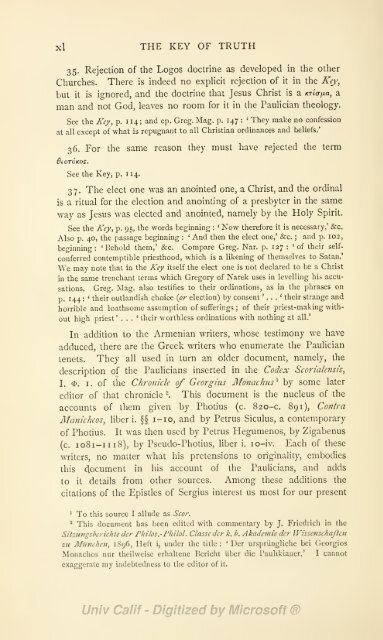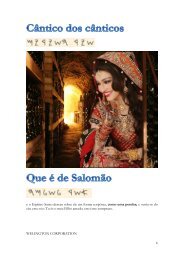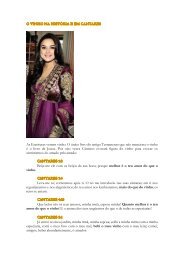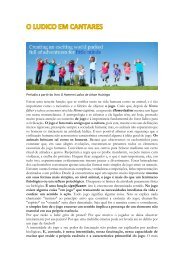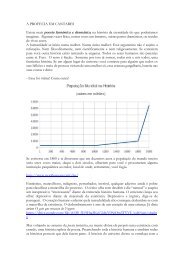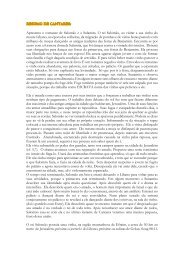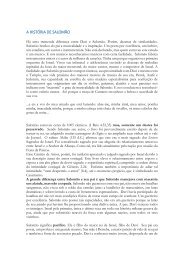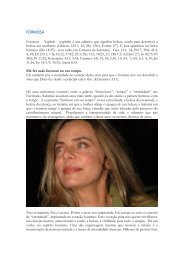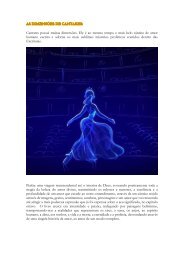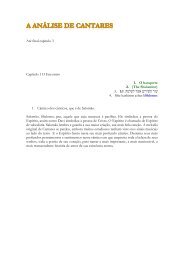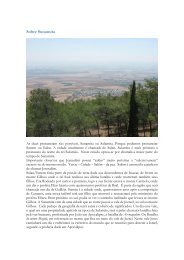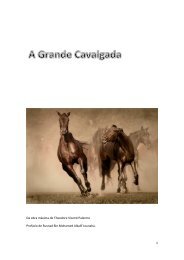- Page 3: ^C^T^V^ ^ ? >Alot , L
- Page 6 and 7: HENRY FROWDE, M.A. PUBLISHER TO THE
- Page 8 and 9: ©;efor& PRINTED AT THE CLARENDON P
- Page 10 and 11: VI PREFACE least a Manichean book;
- Page 12 and 13: viii PREFACE in Armenia, and in Mes
- Page 14 and 15: x PREFACE it was the heresy of the
- Page 16 and 17: xii PREFACE system was, like that o
- Page 18 and 19: xiv PREFACE Where my conclusions ar
- Page 20 and 21: Preface CONTENTS Summary of the Int
- Page 22 and 23: xviii THE KEY OF TRUTH Christs, bec
- Page 24 and 25: XX THE KEY OF TRUTH (cxviii) under
- Page 26 and 27: xxii THE KEY OF TRUTH (cxc) and in
- Page 28 and 29: xxiv THE KEY OF TRUTH to their atta
- Page 30 and 31: xxvi THE KEY OF TRUTH '4. Except Ch
- Page 32 and 33: xxviii THE KEY OF TRUTH faith.' Of
- Page 34 and 35: xxx THE KEY OF TRUTH would deny the
- Page 36 and 37: xxxii THE KEY OF TRUTH one great te
- Page 38 and 39: xxxiv THE KEY OF TRUTH 4. All true
- Page 40 and 41: xxxvi THE KEY OF TRUTH which would
- Page 42 and 43: xxxviii THE KEY OF TRUTH 22. One un
- Page 46 and 47: xlii THE KEY OF TRUTH alrrjs (Mapla
- Page 48 and 49: xliv THE KEY OF TRUTH Gospels ?' He
- Page 50 and 51: xlvi THE KEY OF TRUTH KdKiav /u€#
- Page 52 and 53: xlviii THE KEY OF TRUTH But the Arc
- Page 54 and 55: 1 THE KEY OF TRUTH five persons wer
- Page 56 and 57: Hi THE KEY OF TRUTH and the other.
- Page 58 and 59: liv THE KEY OF TRUTH Are we to infe
- Page 60 and 61: lvi THE KEY OF TRUTH is this deceit
- Page 62 and 63: lviii THE KEY OF TRUTH Paulician Ch
- Page 64 and 65: lx THE KEY OF TRUTH north, and 40-5
- Page 67 and 68: TOPOGRAPHY OF THONRAK Ixi remains o
- Page 69 and 70: WHO WAS SMBAT THE HERESIARCH ? Ixii
- Page 71 and 72: HE WAS PROBABLY SMBAT BAGRATUNI Ixv
- Page 73 and 74: ARMENIAN SOURCES CONFLICTING lxvii
- Page 75 and 76: TOPOGRAPHY OF HARO AND MANANALI lxi
- Page 77 and 78: BYZANTINE OPPRESSION OF PAULICIANS
- Page 79 and 80: CENTRES OF GREEK PAULICIANISM lxxii
- Page 81 and 82: CAUSES OF THE MOHAMMEDAN CONQUEST l
- Page 83 and 84: ISAAC CATHOLICOS, C. 1150-1200 lxxv
- Page 85 and 86: HIS SUMMARY OF PAULICIAN TENETS lxx
- Page 87 and 88: JOHN OF OTZUN S TESTIMONY, C. 700 I
- Page 89 and 90: AGAPE AND EUCHARIST NOT SEPARATED l
- Page 91 and 92: CANONS OF SAHAK, C. 425 lxxxv Pereg
- Page 93 and 94: PAULICIAN TENETS PRIMITIVE lxxxvii
- Page 95 and 96:
AND WERE NOT LATE AND ECLECTIC Ixxx
- Page 97 and 98:
SHEPHERD OF HERMAS. EBIONITES xci t
- Page 99 and 100:
THEODOTUS AND THE ALOGI xciii The a
- Page 101 and 102:
MELITO. PAUL OF SAMOSATA xcv predil
- Page 103 and 104:
LACTANTIUS. ACTS OF ARCHELAUS xcvii
- Page 105 and 106:
IMPORT OF THE BAPTISM OF JESUS xcix
- Page 107 and 108:
ELECTION OF JESUS AS THE SON ci dom
- Page 109 and 110:
ARCHELAUS BISHOP IN ARMENIA ciii th
- Page 111 and 112:
ORIGIN OF NAME PAULICIAN cv We are
- Page 113 and 114:
FOLLOWERS OF PAUL OF SAMOSATA cvn m
- Page 115 and 116:
COUNCIL OF SHAHAPIVAX, 480 A. D. ci
- Page 117 and 118:
ORIGIN OF THE ARMENIAN NEW TESTAMEN
- Page 119 and 120:
ST. BASIL'S REFERENCES TO ARMENIA c
- Page 121 and 122:
GRECIZING OF THE ARMENIAN CHURCH cx
- Page 123 and 124:
THE WORK ACCOMPLISHED BY SMBAT cxvi
- Page 125 and 126:
HE ORGANIZED THE ADOPTIONISTS cxix
- Page 127 and 128:
ANALOGOUS TEACHING OF TERTULLIAN cx
- Page 129 and 130:
ABSENCE OF A TRUE HIERARCHY cxxiii
- Page 131 and 132:
ORIGINAL AND OPERATIVE SIN cxxv cho
- Page 133 and 134:
ELECTION AND HEREDITARY PRIESTS cxx
- Page 135 and 136:
AFFILIATION TO ST. PAUL cxxix like
- Page 137 and 138:
MANICHEAN ELECT ONES cxxxi Marcion
- Page 139 and 140:
CHRIST IMMANENT IN THE ELECT cxxxii
- Page 141 and 142:
TERTULLIAN ON VIRGIN AND EUCHARIST
- Page 143 and 144:
ORIGIN OF THE BOGOMILES cxxxvn Paul
- Page 145 and 146:
PAULICIANS AND CATHARI cxxxix of th
- Page 147 and 148:
CATHARS REJECTED CHILD-BAPTISM cxli
- Page 149 and 150:
THE CATHAR RITUAL OF LYON cxliii Pa
- Page 151 and 152:
THE CATHARS NOT MANICHEANS cxlv Man
- Page 153 and 154:
CATHAR INTERCOURSE WITH EAST cxlvii
- Page 155 and 156:
THE CATHARS DEFERRED BAPTISM cxlix
- Page 157 and 158:
PAULICIANS. BOGOMILES. BAPTISTS cli
- Page 159 and 160:
SYMBOL OF THE FISH EXPLAINED cliii
- Page 161 and 162:
TESTIMONIA ABOUT THE BAPTISM civ '
- Page 163 and 164:
BAPTISM THE BIRTH OF CHRIST clvii a
- Page 165 and 166:
ORIGIN OF MODERN CHRISTMAS clix we
- Page 167 and 168:
RELATION OF THE BAPTISM TO EASTER c
- Page 169 and 170:
THE PAULICIAN EUCHARIST clxiii Chri
- Page 171 and 172:
THE CHURCH AS REUNION clxv he But S
- Page 173 and 174:
NERSES OF LAMBRON clxvii ' But/ wen
- Page 175 and 176:
FAUSTUS THE MANICHEAN clxix between
- Page 177 and 178:
THE MUZARABIC LITURGY clxxi Elipand
- Page 179 and 180:
ELIPANDUS. FELIX OF URGEL clxxiii l
- Page 181 and 182:
ADOPTIONISM IN SPAIN clxxv deitate
- Page 183 and 184:
THE SENSE OF ADOPTIVUS clxxvii desc
- Page 185 and 186:
EARLY BRITISH CHURCH AND BEDE clxxi
- Page 187 and 188:
CHRIST IMMANENT IN THE FAITHFUL clx
- Page 189 and 190:
MONTANIST PROPHECY clxxxiii which w
- Page 191 and 192:
PAULICIANS AND MONTANISTS clxxxv on
- Page 193 and 194:
THE IDEA OF THE VIRGIN BIRTH clxxxv
- Page 195 and 196:
ARMENIAN BAPTISMAL SERVICE clxxxix
- Page 197 and 198:
ADOPTIONISTS AND WESTERN TEXT cxci
- Page 199 and 200:
DOCETIC TENDENCIES INHERENT cxciii
- Page 201 and 202:
IN THE PNEUMATIC CHRISTOLOGY cxcv s
- Page 203 and 204:
I. THE ARMENIAN TEXT n r k n tb P I
- Page 205 and 206:
*|»//7t^Ity y n-uttiutrpnpn- • y
- Page 207 and 208:
unupp bLbnbgunjb uni ppb ') nullum
- Page 209 and 210:
Lutlinuu, qnp p ^opk tuJhu tu hutfk
- Page 211 and 212:
9 mil urn It Jl. 11 ii t'M it I, In
- Page 213 and 214:
II nunuiu b tinpqpu *bngtn Jp'h yjb
- Page 215 and 216:
T 3 bbnf^uii-npnt-Pbuiup : "\uiuiiu
- Page 217 and 218:
15 | V nufn b af&hbpnpn . » ^uinai
- Page 219 and 220:
f^iuqiun-U Ltrpiqujpu/bnqp'b uiuuiu
- Page 221 and 222:
i 9 np tin i nt [11011I1 ipupnn ufb
- Page 223 and 224:
21 tun. uujffuu nu* // 1/1 in iii(i
- Page 225 and 226:
23 Luipblj Ju,tubhl_[> &ng pi.p unu
- Page 227 and 228:
25 abpbluujju uiju u/unuu/buiifpnup
- Page 229 and 230:
Pk • •••* 27 ••• ntl
- Page 231 and 232:
2 9 bu jtut-putbuiubuju bbtubp, aji
- Page 233 and 234:
3i It- 1 uutnuh-n i uiUuitruh' up j
- Page 235 and 236:
33 pub u. pub itlimpl, mtlt uinJinL
- Page 237 and 238:
35 UiIju, b tfj^nif-f/b \\uuint-6-n
- Page 239 and 240:
37 b-p miu- \\ppb iin^luiiiii 'p uu
- Page 241 and 242:
39 uiuuintmb utjp'b ^ptuJuib* n*^np
- Page 243 and 244:
4i iimniu^u, qpfib-iui npu, qui'bp'
- Page 245 and 246:
43 qJhqu, p-nnjruii ibgh "hngm L. b
- Page 247 and 248:
45 ')»uip£bmj_tnt-b uimp aiu \)*p
- Page 249 and 250:
47 ian'Lnt-i_ qluuj^u uppnij^ L bhb
- Page 251 and 252:
49 \fu 'p '//'{""J &uin.uij[ig {"Ti
- Page 253 and 254:
5i \ \ptf- ql{bp utqopbgu UJjungpb
- Page 255 and 256:
53 &nup buiu : '\\uiplbuii uibubui^
- Page 257 and 258:
mil b muTrbm iu nPP 55 ijlim nt-tin
- Page 259 and 260:
57 (iiuipnuppi'b, Lppnpn
- Page 261 and 262:
59 pju% H£_ p%*_ /uouptT, ujj/_ no
- Page 263 and 264:
^tfuhrp Tjuinbrfi npn.trml/ piP, aj
- Page 265 and 266:
63 ^ ytutfiiiuu a p
- Page 267 and 268:
65 quqtuint.au b. is u/uj Ifiunni [
- Page 269 and 270:
ENGLISH TRANSLATION E 2
- Page 271 and 272:
CONTENTS Exordium of Author 7 82 83
- Page 273 and 274:
THE ENGLISH TRANSLATION The Book ca
- Page 275 and 276:
ON REPENTANCE AND FAITH 73 repent 1
- Page 277 and 278:
ON BAPTISM 75 baptism ; then it was
- Page 279 and 280:
ON BAPTISM 77 lish in perfect faith
- Page 281 and 282:
AGAINST THE ORTHODOX, ETC. 79 and i
- Page 283 and 284:
ON THE FORTY DAYS* FAST 8l mandment
- Page 285 and 286:
ON THE TWELVE DISGUISES OF SATAN 83
- Page 287 and 288:
AGAINST ABUSES, ETC. 85 teachers of
- Page 289 and 290:
ON THE THREE SACRAMENTS 87 who list
- Page 291 and 292:
ON BAPTISM 89 they make answer and
- Page 293 and 294:
DIRECTIONS FOR BAPTIZING 91 then fa
- Page 295 and 296:
CONFESSION OF FAITH, ETC. 93 As I s
- Page 297 and 298:
OF THE PERSON BAPTIZING 95 himself
- Page 299 and 300:
THE RITE OF BAPTISM 97 once come on
- Page 301 and 302:
THE RITE OF BAPTISM 99 Nextye shall
- Page 303 and 304:
CANDIDATES FOR ELECTION IOI on the
- Page 305 and 306:
CANDIDATES FOR ELECTION 103 descend
- Page 307 and 308:
CANDIDATES FOR ELECTION 105 Thus, m
- Page 309 and 310:
THE RITE OF ELECTION 107 tribulatio
- Page 311 and 312:
THE RITE OF ELECTION 109 heaven, wa
- Page 313 and 314:
THE RITE OF ELECTION III on my serv
- Page 315 and 316:
SAYINGS ABOUT THE VIRGIN MARY 1 13
- Page 317 and 318:
ON INTERCESSION, ETC. 115 Magdalen,
- Page 319 and 320:
A CATECHISM FOR CHRISTIANS 117 Thir
- Page 321 and 322:
A CATECHISM FOR CHRISTIANS 1 19 Q.
- Page 323 and 324:
\ CATECHISM CONTINUED 121 of the ho
- Page 325 and 326:
CONSECRATION OF THE FLESH AND BLOOD
- Page 328 and 329:
ERRATUM. P. 124, 1. \%,for the word
- Page 330 and 331:
126 THE KEY OF TRUTH the part of th
- Page 332 and 333:
128 THE KEY OF TRUTH have known ' f
- Page 334 and 335:
130 THE KEY OF TRUTH be spotless. A
- Page 336 and 337:
132 THE KEY OF TRUTH bare-footed ;
- Page 338 and 339:
134 THE KEY OF TRUTH and hold him w
- Page 340 and 341:
136 THE KEY OF TRUTH his days there
- Page 342 and 343:
The patriarch Samuel destroys Pauli
- Page 344 and 345:
Vrver 140 TPIE KEY OF TRUTH But the
- Page 346 and 347:
Khnus and Thnlail other centres. Pa
- Page 348 and 349:
Smbat's history. A pupil of the Per
- Page 350 and 351:
and profane the sacra- Blasphemy ag
- Page 352 and 353:
Smbat organized the sect. Thonraki
- Page 354 and 355:
150 THE KEY OF TRUTH greet it with
- Page 356 and 357:
152 APPENDIX IV JOHN OF OTZUN JOHN
- Page 358 and 359:
154 THE KEY OF TRUTH insidiarum sua
- Page 360 and 361:
56 THE KEY OF TRUTH vino ad similit
- Page 362 and 363:
[ 58 THE KEY OF TRUTH The same Ners
- Page 364 and 365:
i6o APPENDIX VI The Provencal Ritua
- Page 366 and 367:
162 THE KEY OF TRUTH O thou, holy a
- Page 368 and 369:
164 THE KEY OF TRUTH of God is holy
- Page 370 and 371:
l66 THE KEY OF TRUTH And ye must un
- Page 372 and 373:
l68 THE KEY OF TRUTH have [? said]
- Page 374 and 375:
170 THE KEY OF TRUTH loud. And then
- Page 376 and 377:
172 THE KEY OF TRUTH rrjs Xeirovpyi
- Page 378 and 379:
174 APPENDIX VIII PAUL OF TARON The
- Page 380 and 381:
176 THE KEY OF TRUTH he said he ord
- Page 382 and 383:
178 APPENDIX IX MACARIUS' EPISTLE T
- Page 384 and 385:
Backwardness of Armenia in matters
- Page 386 and 387:
Baptism not to be deferred Can deac
- Page 388 and 389:
Confession of orthodox faith before
- Page 390 and 391:
186 THE KEY OF TRUTH be born of wat
- Page 392 and 393:
188 THE KEY OF TRUTH p. 14. if-tu^u
- Page 394 and 395:
190 THE KEY OF TRUTH what could not
- Page 396 and 397:
192 Annunciation, Feast of, not kep
- Page 398 and 399:
i 94 Constantine V, emperor, a Paul
- Page 400 and 401:
196 Holy Spirit, possession by it,
- Page 402 and 403:
198 Muzarabic Liturgy, its Adoption
- Page 404 and 405:
200 INDEX Scythian monks, A. D. 5 2
- Page 407 and 408:
LIST OF WORKS CONSULTED. Johannes B
- Page 411:
UC SOUTHERN REGIONAL L IBRARY FACIL


